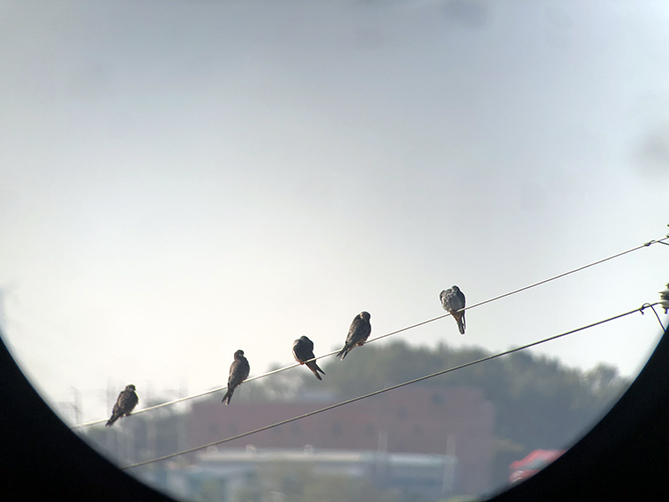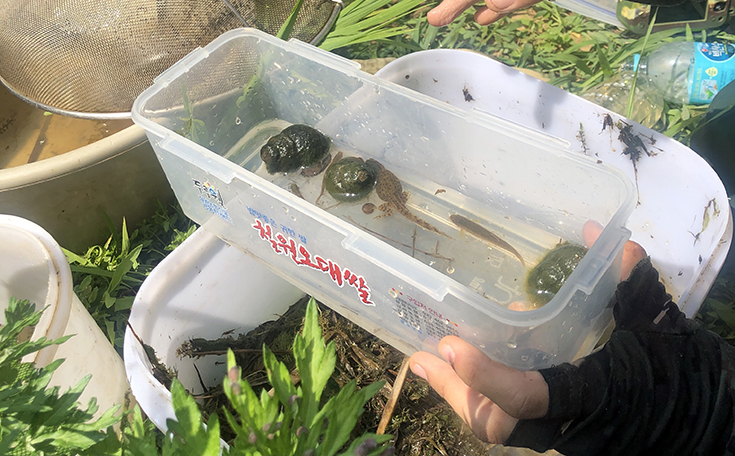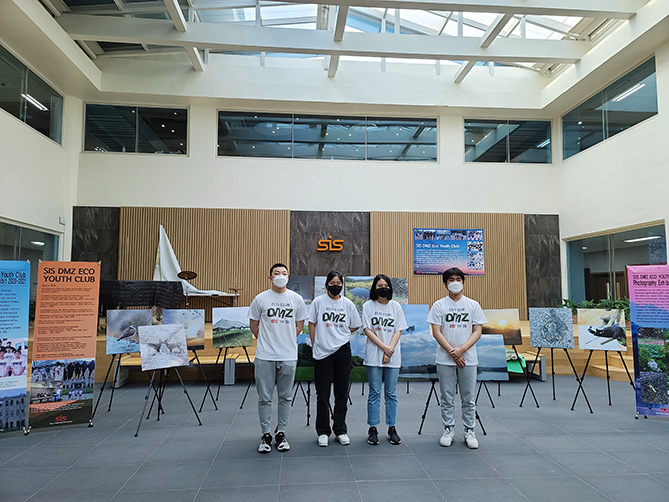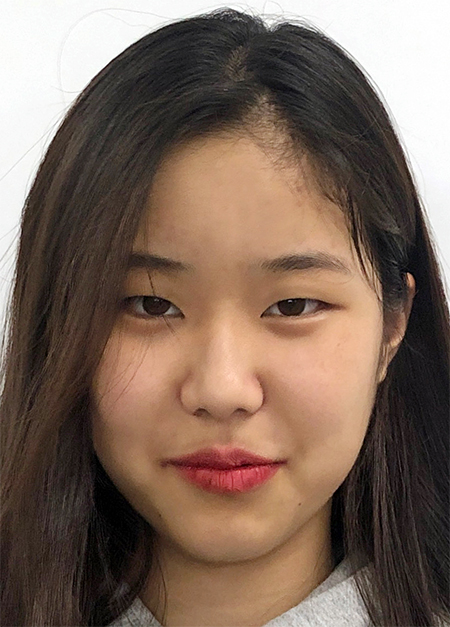The DMZ Youth ECO Club at Seoul International School explores scarce ecosystems near the DMZ (Korean Demilitarized Zone), which is a buffer zone between North Korea and South Korea that was formed after the cessation of the Korean War in 1953. Since the formation of the DMZ, civilians have been prohibited from entering the area, with rare exceptions given to foreigners. Not only is the zone historically significant, but it is also a valuable resource for ecosystem research, as the plant and animal species there have been untouched for the past 50 years.
Since our sophomore year, my classmates and I have regularly visited ecosystems near the DMZ in Paju, learning about various topics such as land formation, animal species unique to the DMZ, ways of using cameras and binoculars, and seasonal changes. We have also participated in various overnight trips with students from other schools, for which we created presentations based on our collection of different types of live plants.

One particular experience that stood out for me was when we went into a pond and collected samples of the water. At first, I did not understand the purpose of collecting lake water. On the outside, the lake looked dull and empty, and there were no signs of movement or activity. However, once entering the pond, I felt plants and things moving around and touching my legs. After we each collected our samples in clear tubes, I was shocked at the variety and liveliness of the specimens I had found.

In such a small sample, there were so many creatures of different sizes, colors, and textures. This gave all of us an understanding of the magnificent biodiversity at the DMZ. With everyone’s samples, we were able to collect data on and analyze patterns in the populations of various species as well as their trends through the years and seasons.As much as our discoveries at the DMZ revealed the beauty of nature, they also revealed the reality of human impact and detrimental influence on the environment. Through debates on ecosystem protection and education on climate change, I have learned about the rapid deterioration of nature, even in rural areas of Korea. From the perspective of a student living in Seoul, it is hard to pay attention to or even have first-hand experience of the environmental crisis. This led me to find ways to spread awareness and promote the unique biodiversity of the DMZ. I felt that my discoveries of beautiful creatures and insights on human impact were far from the concerns of students at Seoul International School, so after much thinking and planning, my teammates and I received the opportunity to set up a photo gallery regarding our experiences at the DMZ.
After school on February 21st, my teammates and I met to set up all of our photos on easel stands and put up posters about our research. For a week, we displayed our photos and talked with other students, as well as teachers, about our experiences at the DMZ. It was interesting to see that many students were aware of the DMZ, but did not know why its ecosystem was special. Many teachers also expressed their gratitude to us for sharing our experiences.

Now that the gallery is over and we are no longer taking trips to the DMZ, I’ve come to realize the importance of the rare moments I get to enjoy fresh air. As students living during the COVID-19 pandemic, our lives have been confined to small indoor spaces and classrooms where we can no longer interact with nature and truly appreciate its beauty. By exploring the ecosystems of the DMZ, witnessing creatures as part of nature, and sharing our findings with my community, I gained more knowledge about the environment, as well as about our values in life and role as students in appreciating and protecting nature.

Asuka Kurebayashi
Grade 11
Seoul International School

